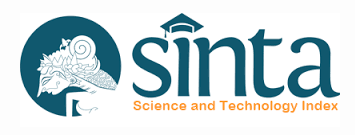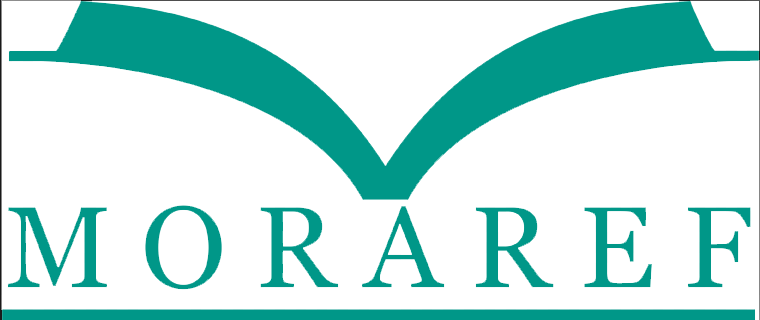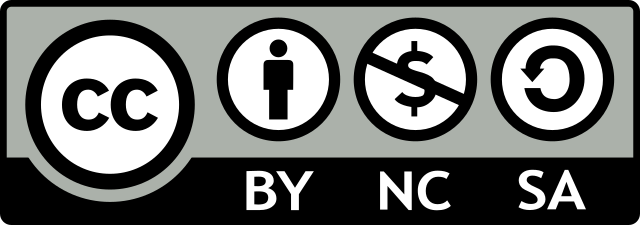Peran Pustakawan dalam Pengembangan Literasi Informasi di Perpustakaan Universitas Muhammadiyah Makassar
Indonesia
Abstract
Abstract
This study exmines the role of librarians in developing information literacy in the library of the Muhammadiyah University of Makassar. The background in this research is based on the current situation where university libraries rarely teach informtion literacy to users. As for the main problem in this research is “the role of librarians in developing information literacy in the library of the University of Muhammadiyah Makassar”. From the subject matter above the researcher divided into 2 problems, namely: first how the role of librarians in developing information literacy in the library of the University of Muhammadiyah Makassar. And the second is the development of the information literacy in the library of the University of Muhammadiyah Makassar.
This type of research is a qualitative descriptive study and a systematic managerial approach, where data is collected by using observation, interviews and documentation as well as using data management and analysis techniques which are carried out through four stage, namely data collection, data reduction, data presentation and taking conclusions.
The role of librarians in developing information literacy is quite good, seeing librarians have carried out their functions as educators in educating librarians in literacy and managing information needed by the librarians. As an adminisrator, providing good services, in this case the provision of digital services, journals and a convenient place for the running of information literacy programs. As a supervisor, supervises and provides guidance to user. Whereas in the development of information literacy, each skill has gone well looking at the contribution of librarians in educating and applying skills in information literacy, starting from identifying information needs, tracking management tools, publicizing and using technology.
As an implication, it is expected that a new breakthrough in the development of informtion literacy is needed to make this information literacy as a basic course, librarians must also be more creative in educating librarians and librarian also need to improve their competence.
Keywords: information literacy.college’s library, librarian
Downloads
References
Alfi Mufida Ahmad, Peran Pustakawan dalam Meningkatkan Literasi Informasi di SMA LABSCHOOL KEBAYORAN (Jakarta : Program Studi Ilmu Perpustakaan, Fakultas Adab Dan Humaniora UIN Syarif Hidayatullah Jakarta, 2017.
Abdul karim Batubar a, Literasi Informasi di Perpustakaa,(Yogyakarta :Jurnal Iqra, Vol.8 No.1, Mei,2014.
Ida Farida dkk, information Literacy Skills: Dasar Pembelajaran Seumur Hidup (Jakarta: UIN Jakarta Press, 2005).
Kementrian Pendidikan dan Kebudayaan RI Kamus Besar Bahasa Indonesia (jakarta: Balai Pustaka, 2010.
Marsudi Ag dkk, Seri Literasi Informasi Mencari, Menemukan, Dan Menggunakan Informasi Secara Bertanggung jawab (Yogyakarta: Graha Ilmu 2016).
Sulistyo Basuki, Pengantar Ilmu Perpustakaan, (Jakarta: Gramedia Pustaka Utama, 1991).
W.J.S Poerwadarminta, Kamus Umum Bahasa Indonesia, (Jakarta Timur: Balai Pustaka, 2003).
Ikatan Pustakawan Indonesia, Anggaran Dasar dan Anggaran Rumah Tangga disertai Kode Etik Ikatan Pustakawan Indonesia, (Jakarta: Ikatan Pustakawan Indonesia, 2006).
Sitti Husaebah Pattah.,Literasi Informasi : Peningkatan Kompetensi Informasi Dalam Proses Pembelajaran, (Makassar: Jurnal Ilmu Perpustakaan dan Kearsipan Khazanah Al-Hikmah, Vol.2 No.2,Desember, 2014).
Undang-Undang Republik Indonesia No. 43 Tahun 2007 Tentang Perpustakaan Pasal 1.
By submitting your manuscript to our journal, you are following Copyright and License








